Key Notes
-
Gutenberg is Coming!
For this week's Key Note, I wanted to highlight a reply that James Burts recently posted to the forums--it's exciting news and we don't want you to miss it!
"We will be adding support for Gutenberg from KLAS. Time will tell if Scribe has any purpose beyond being a valuable testbed for our duplication efforts, but we have certainly heard loud and clear that you all want us to integrate KLAS with Gutenberg.
However, in order to be able to do this, there are some foundational parts that must be in place first. The biggest and most important of them is what we are calling the "Duplication Queue". The Duplication Queue is just what the name implies-- a prioritized list of titles to be duplicated to cartridges. We are adding to the nightly routines to make sure every patron's Duplication Queue is automatically filled with books that the patron would want. This automatic selection will function with similar rules as the current nightly auto-select to allow KLAS to pick books to be added to the duplication queue, but with a few very important differences from what nightly currently does.
- The duplication queue will be books that the system has selected in advance.
-
- The system re-fills the queue the night after a patron receives a duplicated cartridge.
- Once titles are on a patron's duplication queue, entries can be added, re-prioritized, or deleted whenever you want. This will allow the RA's (or the patron themselves) to modify the items queue as they want--- like you can adjust the items in your NetFlix wishlist.
- The selection of items in the duplication queue will be based on the full BARD collection, not just the titles you have available in inventory (which is how the current nightly programs operate).
-
- We are basically needing to create a process very similar to our nightly selection routines, but with some significant differences. The two processes are having to be somewhat aware of each other, and make sure they don't step on each other's toes. (for a simple example, if a patron returns a cartridge and is now due for service, we don't want both systems sending both a book from inventory/turnaround as well as a cartridge from Duplication on Demand.) Weaving these systems around each other is the cause of much of the difficulty in the Duplication Queue.
Having the automated selection of books for the duplication queue is a huge step. It takes away the current need to manually click the "Serve Patron" button, and pick the books that will be written to a cartridge. Having a manual step to select books would severely hamper the ability for Duplication on Demand to scale to support a collection-free workflow."We want to make sure that KLAS' Gutenberg integration doesn't just work, but works well. That means a smooth workflow for selecting titles and duplicating the cartridges, and it also means tracking what actually happened at each step along the way. As part of our integrating with Gutenberg, we will be making sure that enough information is recorded to be able to track down issues, troubleshoot bugs, and answer patrons' questions, such as "Why didn't I get this title?" and "What was on that cartridge?"
The developers are hard at work, and we expect that the Duplication Queue should be finished in late September / October. Then they will work on tying that piece into the Gutenberg itself, which could take another couple of months. The current estimate is that they should be done sometime in December / January.
We expect to deliver a robust process that will work with Gutenberg (or other hardware) to provide your patrons with the right titles at the right time--with the right amount of work needed to run it.
In the meantime, please continue to contact us with your questions, workflow preferences, and suggestions!
-
Happy Holidays from Keystone
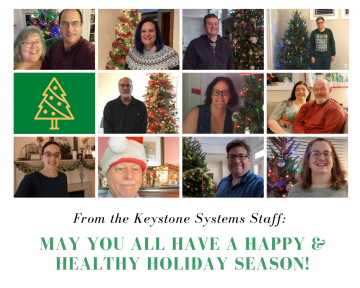
We wish you a Happy and Healthy Holiday Season! May you in find joy and warmth in the holiday lights and comfort knowing a new year is just around the corner! From our homes to yours...here's to a cheerful holiday and a fresh 2021!
Our office will be closed Thursday, December 24, and Friday, December 25, 2020 in observance of Christmas. Regular support hours will resume on Monday, December 28, at 8:00 AM ET. The office will also be closed on Friday, January 1, 2021 for New Year's. Regular support hours will resume on Monday, January 4, at 8:00 AM ET.
If you need to arrange special support hours for these days, please call or e-mail us as soon as possible.
-
Happy Thanksgiving!

Happy Thanksgiving, KLAS users!
This fall, we're very thankful for YOU, and I'd like to do some specific thanks-giving:
Thank you to everyone who reads our blog posts, social media feeds, or Thursday Tips on the forum. You help us to feel connected to our community. You help keep me learning new things to share with you, and when you reply — with a question, an addition, even just pointing out a typo -- you let me know you really are out there. You are all so valuable! I hope you will all stick around with us, and let us know if there's anything we post you want to see more of!
Also, thank you to everyone who volunteers their time and expertise to keep the KLAS Users' Group running. From our amazing officers to our hard-working conference committees to our intrepid KDAC members: we couldn't have a Users' Group without you, and KLAS would be worse off for it in so many ways. We are truly grateful for all of your efforts — and I'm particularly thankful that I get to work with you!
Finally, thank you to the early adopters! Those brave souls who volunteer to help us field test new versions and new features help us provide a better, more stable KLAS to everyone. For example, North Carolina Library for the Blind and Physically Handicapped's support of the Scribe's development and their ongoing testing will ensure we will get high-capacity duplication implemented on schedule. With their help, we will be able to develop and support both Scribe and Gutenberg with a KLAS workflow that really works because they've spent the time, effort, and frustration putting the Alpha version through its paces.
So, here's one more great big "Thank You!" to each and every one of you, from me and from all of us here at Keystone.

-
Happy Thanksgiving!
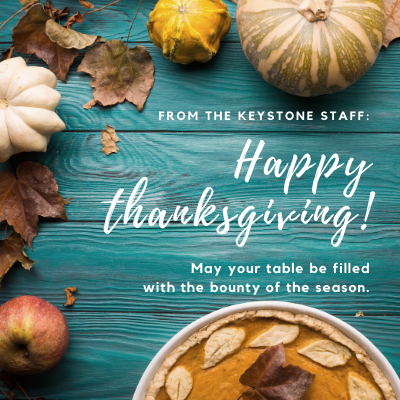
Well, it's going to be an unusual holiday season this year, but may you all find some joy and celebration. Even more importantly, we hope you and your loved ones stay healthy.
In these difficult times, we're grateful to be here for all of you. We have a fantastic users' community, and we're looking forward to supporting you through the winter and hopefully to brighter and easier days ahead.
-
Holiday Cheer at the Keystone Office
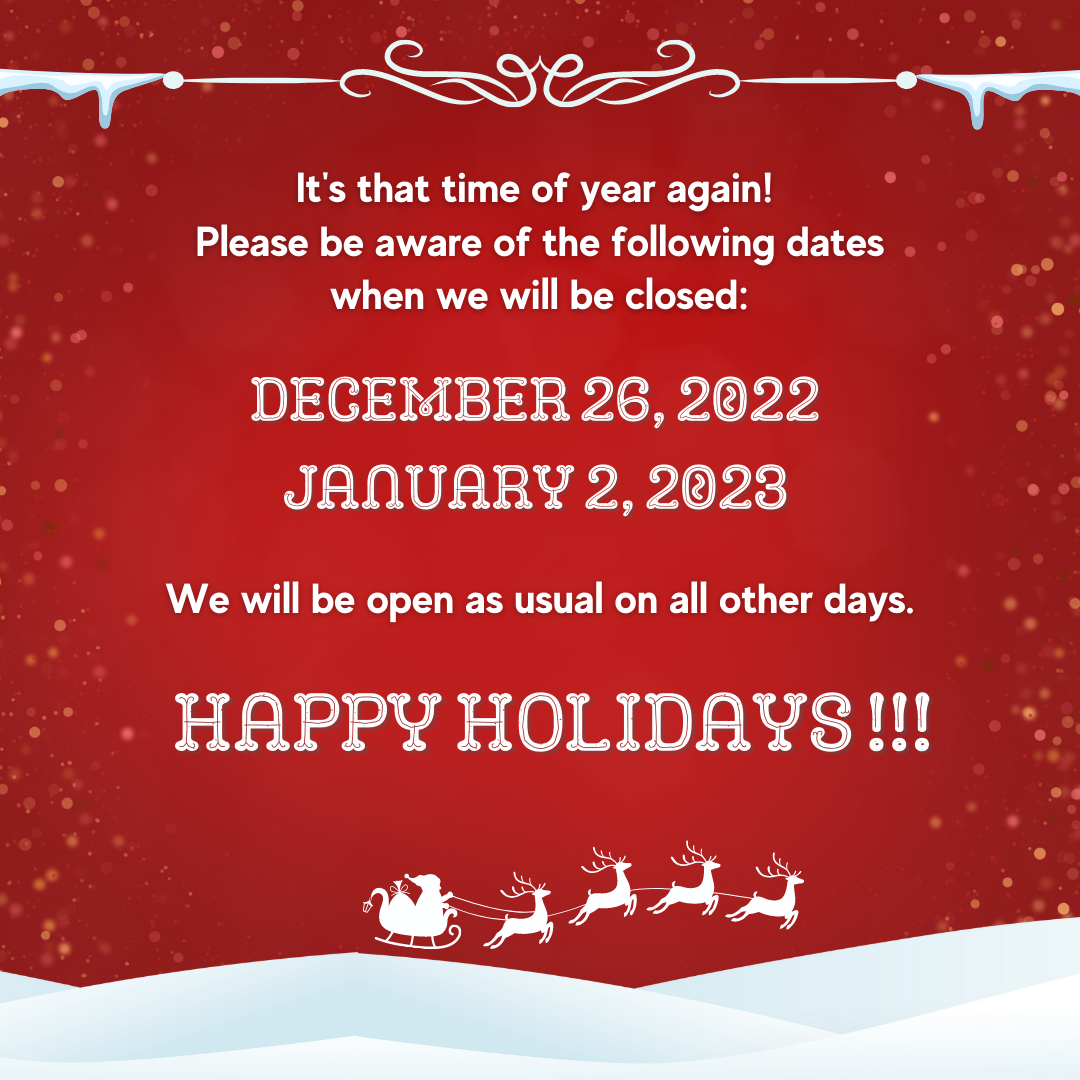
Yesterday, we had our first Holiday office party since 2019. It was wonderful to get everyone back together, share some delicious food, and exchange some gifts. But we also did something totally new and unique: George, who joined Keystone as a developer earlier this year, brought in some liquid nitrogen, and led us in a science experiment!
We started off with a demonstration of the super-cold liquid's properties, with Katharina(our newest Customer Support Specialist) submerging a rubber ball, freezing it to the point that its once-flexible molecules were too densely packed to bounce back. Instead, when she dropped the ball, it broke apart with a loud crack!
[Video description: George dons heavy-duty protective gloves, and picks up a bottle of liquid nitrogen as he explains its properties. The Keystone staff, mostly dressed in festive holiday outfits, are gathered in a circle to watch. The nitrogen steams and boils as soon as it hits the bowl. George helps Katharina gear up in the gloves and safety goggles, then gives her a rubber bouncy ball to hold with long metal tongs. Katharina carefully dunks the ball in the nitrogen, holding it under as the liquid boils around it. Once the boiling subsides, she pulls it out, holds it straight in front of her, and drops it on a metal plate. On impact, the ball splits into three even chunks.]
Once the ball returned to room temperature, the pieces were once again soft and squishy. But the best part of the experiment was up next: ICE CREAM!!!
As the liquid nitrogen was poured into the much warmer bowl of milk and sugar, the ingredients were rapidly chilled, and the nitrogen boiled off, keeping everything light and fluffy. Within minutes, we had delicious, freshly-made soft serve!
[Video description: a long table holds two bowls with a chocolatey liquid in them. Katy and Mitake take turns stirring one bowl, while James and John C. work on the other. They are all wearing rubber gloves and safety glasses. While explaining what to do, George helps each pair get set up with a folded napkin to hold the metal bowl with, since those bowls are about to get very cold. The nitrogen is stored in tall thermoses, just like you might use for coffee or soup. More chocolate is added, and once the ingredients are ready, James and Mitake start pouring in the nitrogen. So much white fog steams up, that you can no longer see the other contents of the bowls, and James, Mitake, and George have to keep fanning the bowls for Katy and John to see what they're stirring. Gradually, the liquid mix in the bowls thickens and ices up into soft serve.]
While we can't invite all of you to the office for dessert, we hope that you all will have the chance to share some holiday joy and wonder of your own--whether it comes in the form of a science experiment, a gift exchange, or just a chance to catch up with friends and family.
From all of us to all of you, Happy Holidays!
[Video description: a collage of close-up photos of the ice cream making process surround a video clip from another angle. The photos show the table with everyone preparing to make the ice cream, the Keystone staff gathered around filming or watching, bowls being held tight and stirred just as the ingredients start to form up, and finally a bowl of delicious-looking chocolate ice cream.]
-
Hot off the Press: Part 1
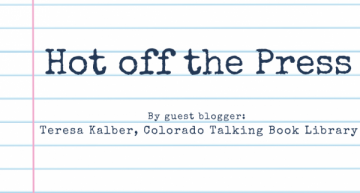
Welcome to the "Hot off the Press" blog series from guest blogger, Teresa Kalber. Teresa is the Network Systems Administrator at Colorado Talking Book Library. In this series, she will be sharing her library's experience being one of the first two KLAS libraries to implement NLS' Gutenberg equipment.
Hot off the Press: Part 1
A little delayed, but as promised we are sharing our experience of converting over to Gutenberg duplication as our main circulation method. This first installment will cover our pre-planning steps.
Our Director has been excited about using duplication on demand since she first heard about it. Knowing this and also knowing our KLAS server was reaching end of life and would not support KLAS 7.7, I began conversations with both our IT department and Keystone as early as December 2018 with a plan to have our server replaced by June 2019. I also started discussions with our security officer and our network administrator about DoD to ensure we would be able to use the equipment on our network without issues.
In May 2019, we found out we had been chosen to be the self-hosted pilot site for Gutenberg integration with KLAS. Our IT department had set-up a new virtual server for me and agreed to allow Keystone to submit an image to be placed on the server to run KLAS. Their caveat was that they would not provide support since the software didn’t conform to standards. Since they have never provided support for our servers anyway, I didn’t see this as a problem.
Things we needed to think about between finding out about the pilot and getting the Gutenberg equipment in September:
- Placing an order for additional mail cards beyond what NLS provides
- Preparing cartridges and containers to use for DoD
- Placing labels on unused cartridges and containers
- Stripping labels from used cartridges and containers and replacing with new labels
- Notification of patrons – we did a blurb in our newsletter and that was our only notification to patrons.
- Selecting patrons for the pilot (if you do one)
- When to start new patrons on DoD (we started new patrons when we started the pilot)
- When to zero out copy allotment so no new books come
- How to cut-over patrons once the pilot is complete
- Initial default number of books on a cartridge and default number of cartridges (We used 10 books/3 cartridges per patron as our default)
Both NLS and Keystone have documents of things to consider during planning stages. NLS also has a great overview of the necessary IT requirements. Once I received this document, I forwarded it to our Security Officer and Network Administrator to ensure there would be no problems in using the Gutenberg equipment on our network. I think opening these lines of communication early helped the process go more smoothly.
We were finally able to convert to KLAS 7.7 on August 19, 2019. This gave us about a month to iron out any issues before receiving our equipment from NLS on September 20th.
-
Hot off the Press: Part 2

"Hot off the Press" is blog series from guest blogger, Teresa Kalber. Teresa is the Network Systems Administrator at Colorado Talking Book Library. In this series, she will be shares her library's experience being one of the first two KLAS libraries to implement NLS' Gutenberg equipment.
The first post in the series is here: Hot off the Press: Part 1.
Hot off the Press: Part 2 - Setting up and testing the Gutenberg Equipment
Warning: a little geeky
On Friday, September 20th, our shipment of equipment arrived from NLS. We received:
- 2 Gutenberg workstations with monitors, keyboard, and mice
- 2 scanners – 1 for check out, 1 for returns
- 2 sets of 20 cartridge slot toaster racks
- 2 sets of USB hubs to attach the toaster racks to the computers
- 2 surge protector power strips
- Lexmark Printer
All of the items are clearly marked with tags to show you how to connect everything.
Back of the Toaster
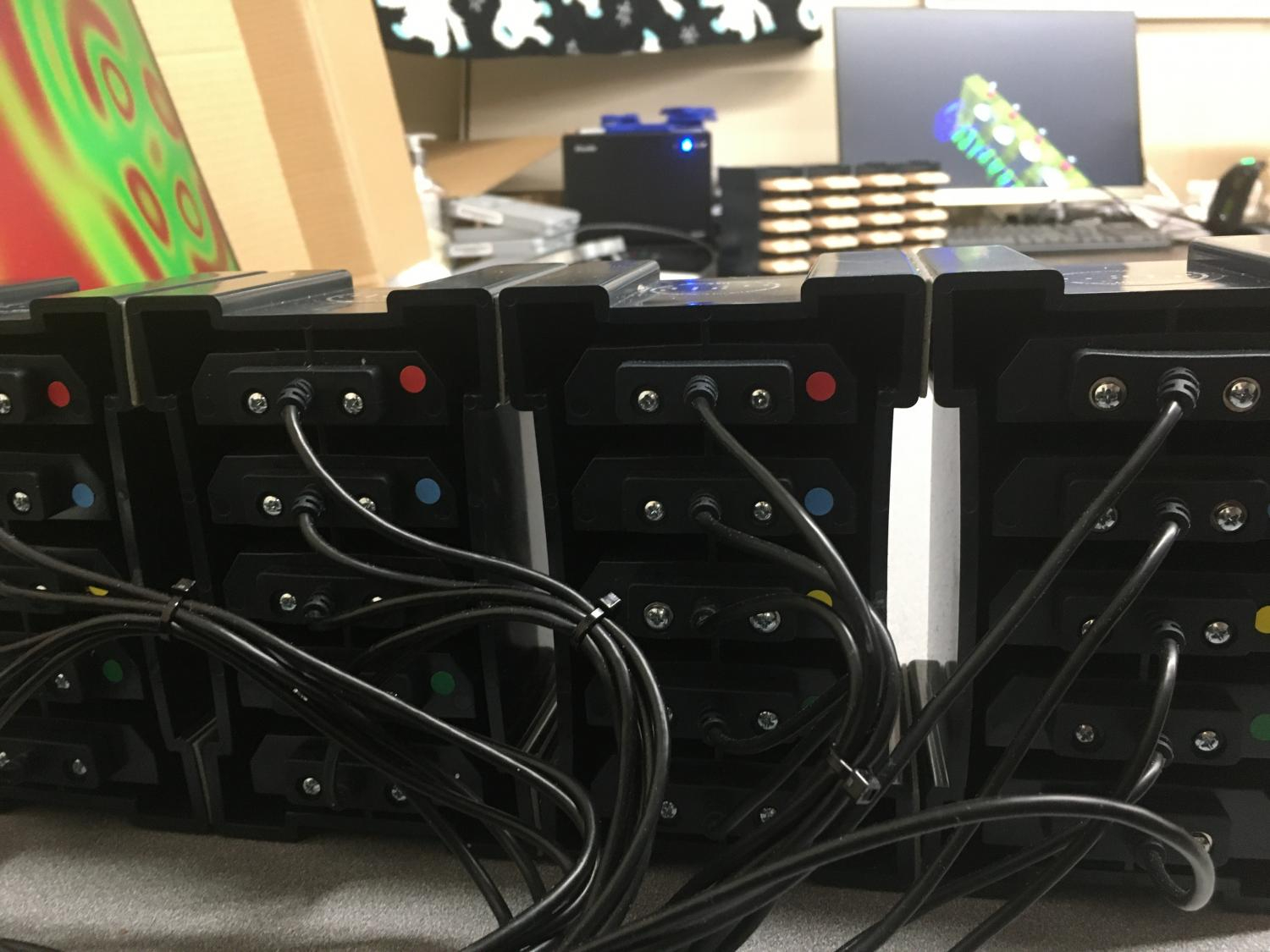
USB Hub
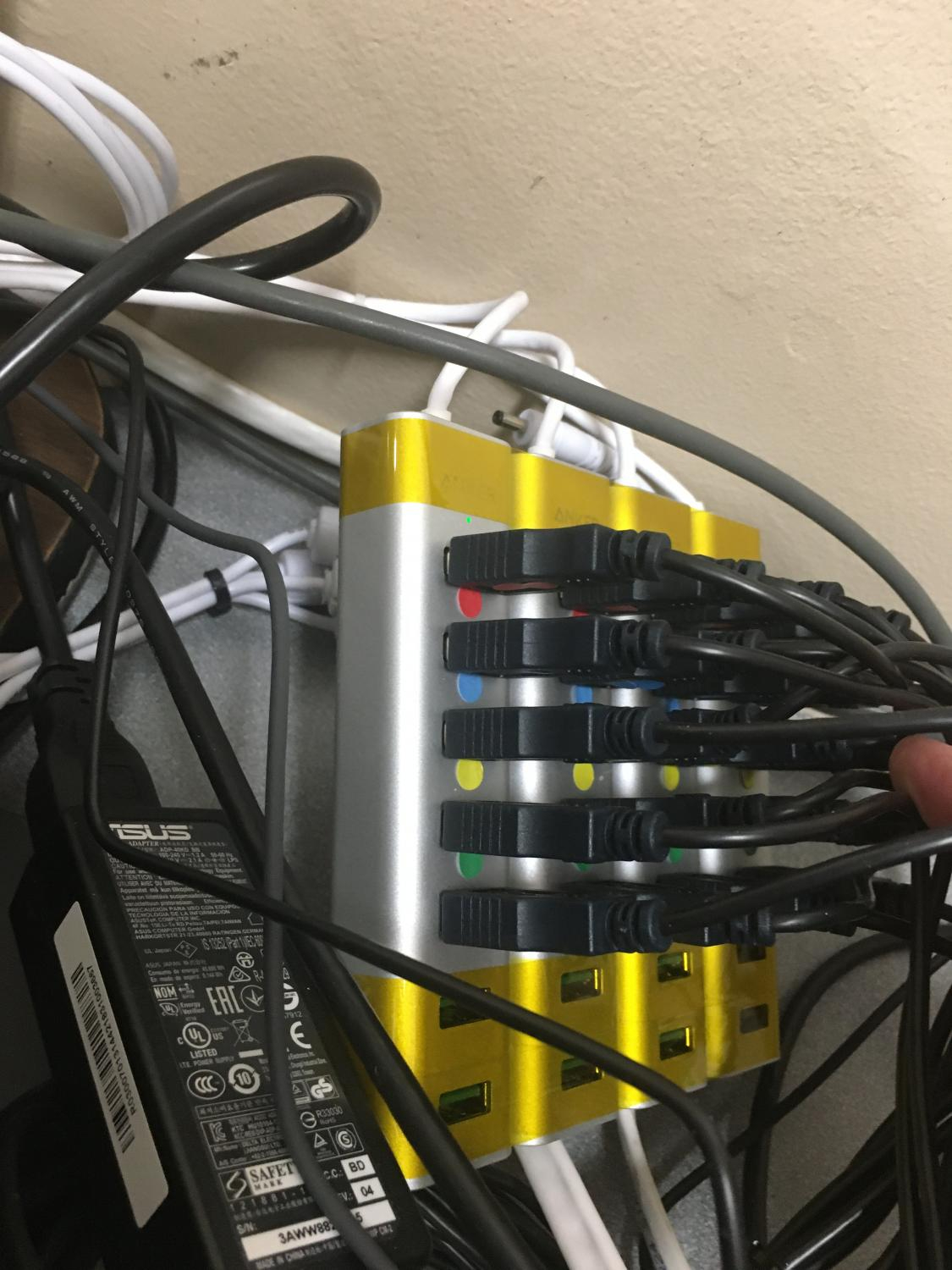
Hub Top
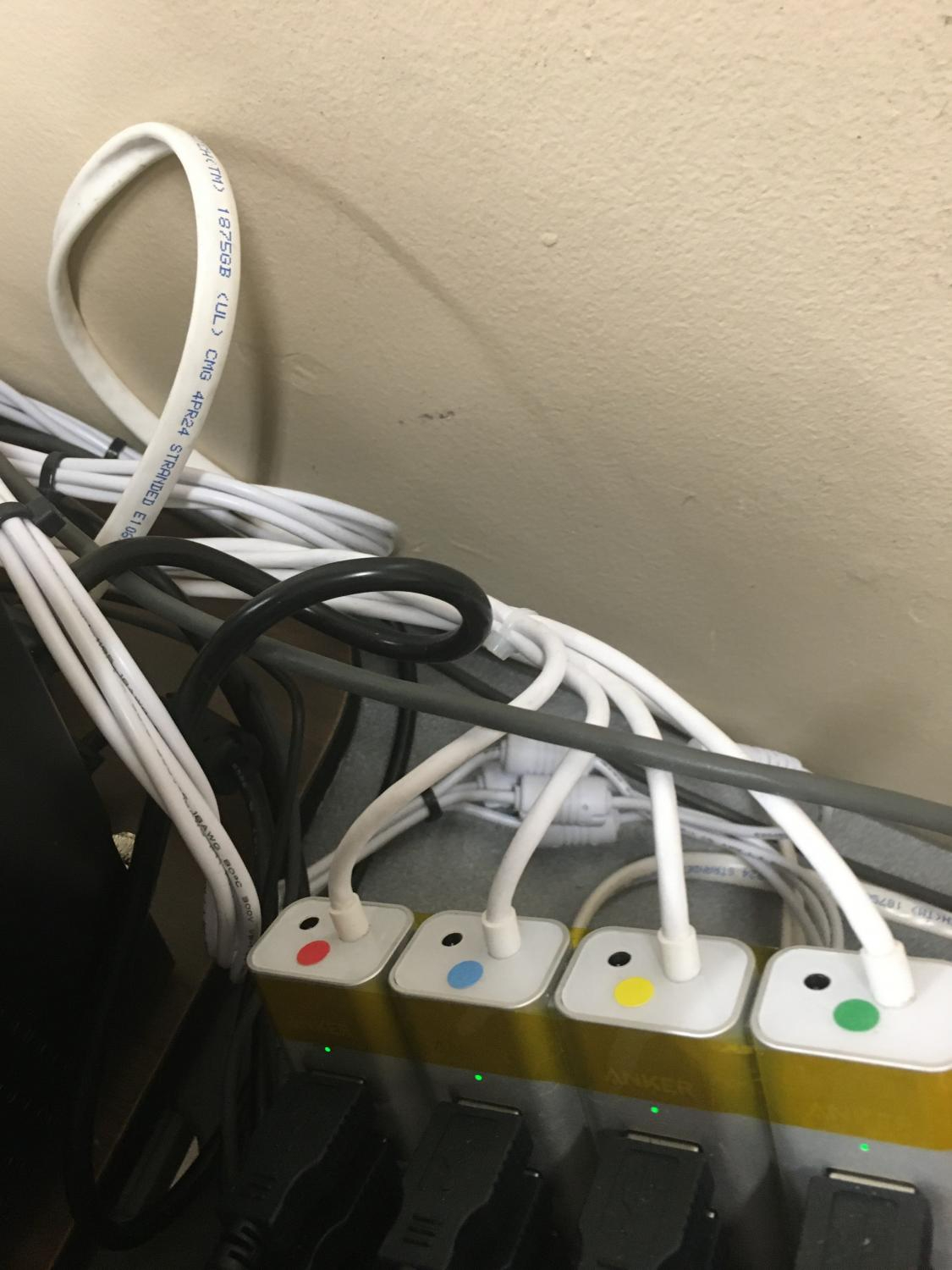
Computer Back
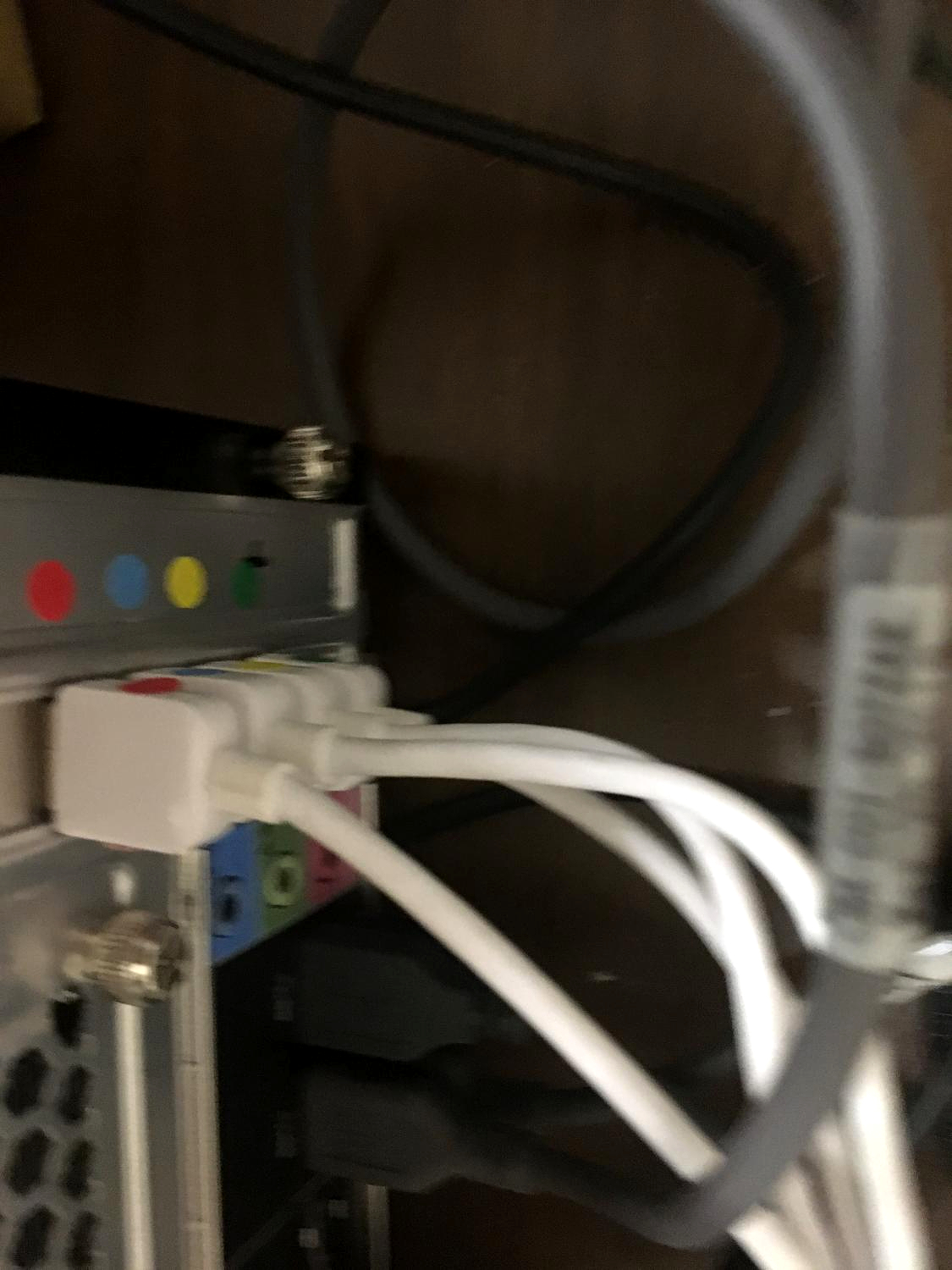
I immediately set-up the equipment so we could begin testing since I was scheduled to be on vacation the following week. NLS sends instructions in an email of what to do once the equipment arrives. One of the functions on the Gutenberg equipment is a “health check” app. In my hurry to get everything set-up, I forgot to run the health check and contacted both NLS and Keystone to let them know the equipment was installed and turned on.
Picture – HealthCheck_LI (screen shot of Gutenberg desktop with HealthCheck icon circled)
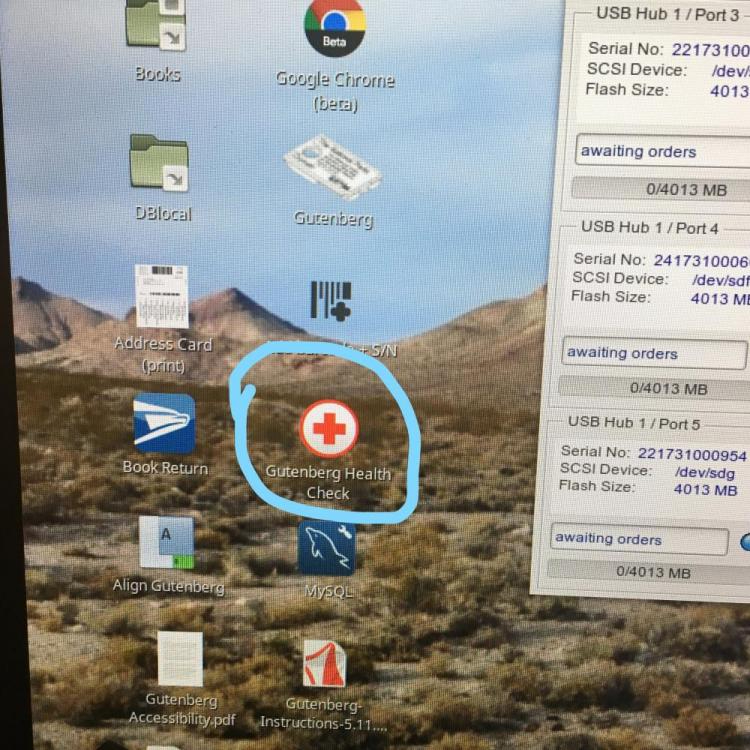
John C. contacted me and asked if I had run the health check since they were unable to connect to our Gutenberg equipment. Since we received two machines, NLS sets one up as the main computer (called CO1A and set with a static IP address) and the other as a secondary computer (called C01A-2). When I ran the health check I found that CO1A wasn’t connecting to the VPNs it needed to access.
I came in on Monday so we could troubleshoot the problem. I contacted our Network Administrator and had him monitor the firewall and traffic coming in and out of the Gutenberg machines using the static IP address we gave CO1A. He could not see any traffic being blocked or any firewall rules preventing access to the system. While I was on the phone with him, I was also having email conversations with NLS and Keystone staff about the problem.Finally, during a conference call with John C and Mark at Keystone, Mark made a comment about CO1A not connecting to our DNS server. I looked at the settings on the machine again and realized the IP address for our gateway server had been entered as the IP address for our DNS server. Once I corrected the IP address in the settings for CO1A rebooted it, everything starting working. Then Mark and John C worked their magic to finalize the connection and push a test order through the system.
So lesson learned – double check all the settings on the Gutenberg machines very carefully once they are received and set-up.
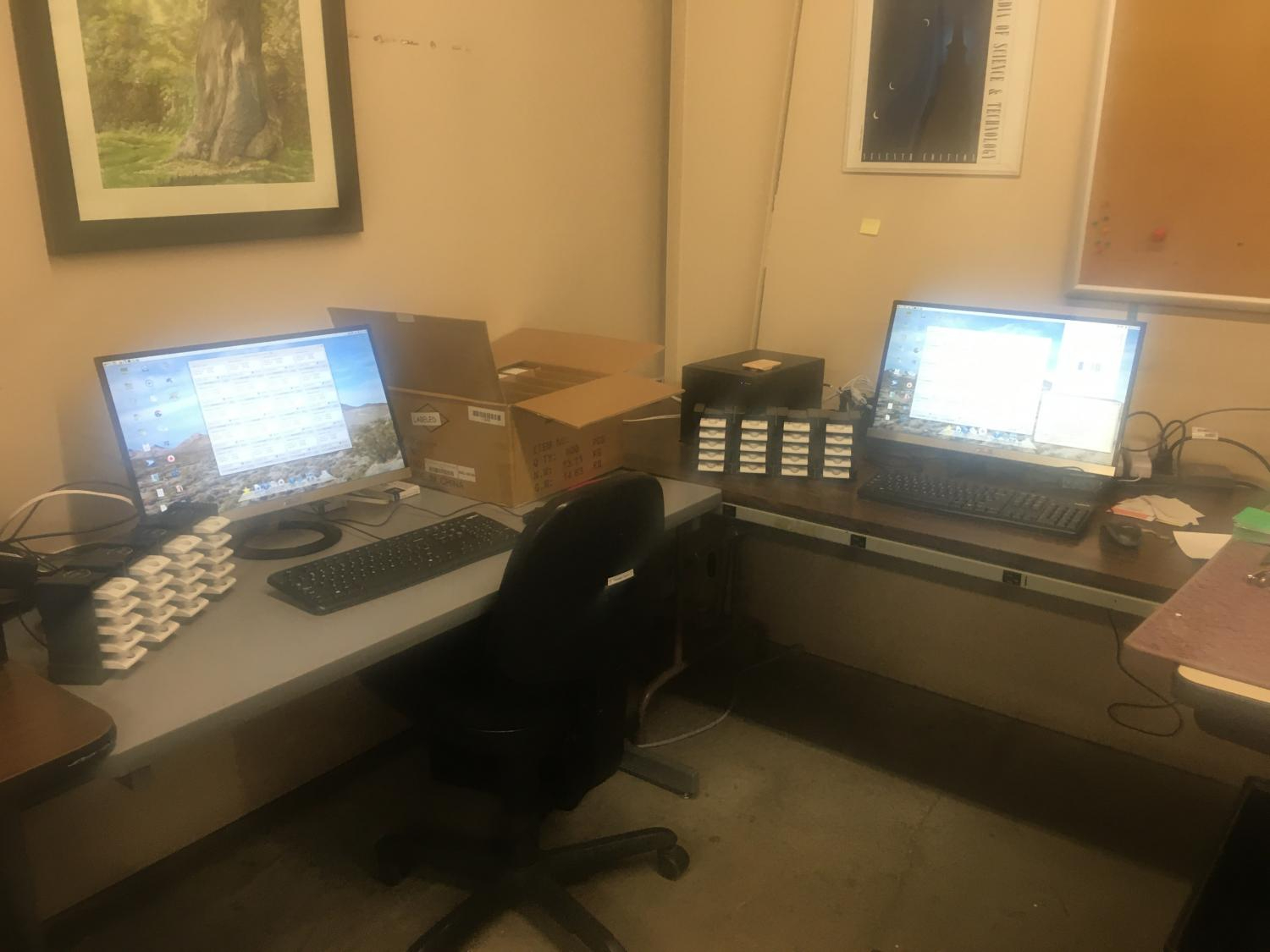
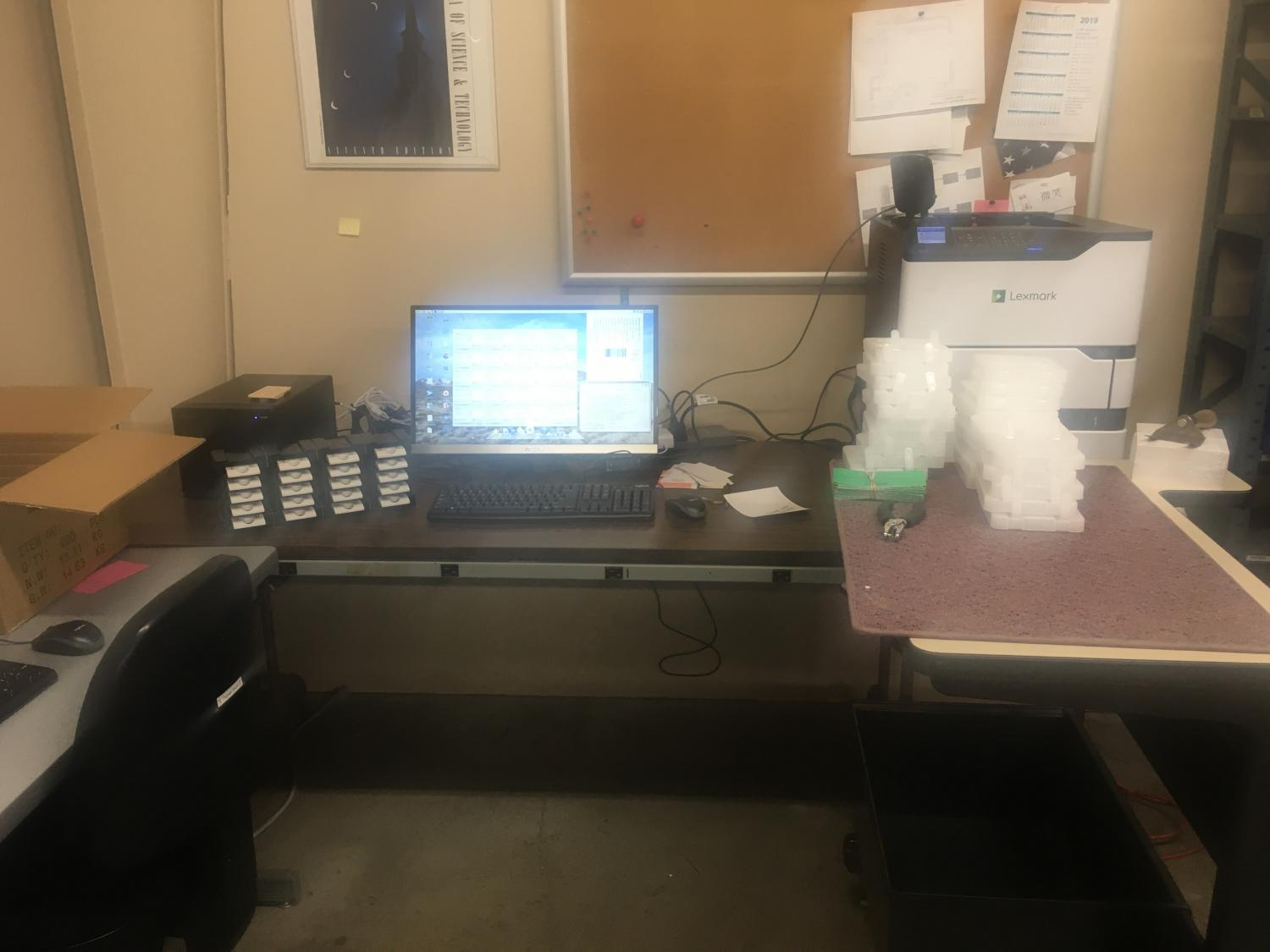
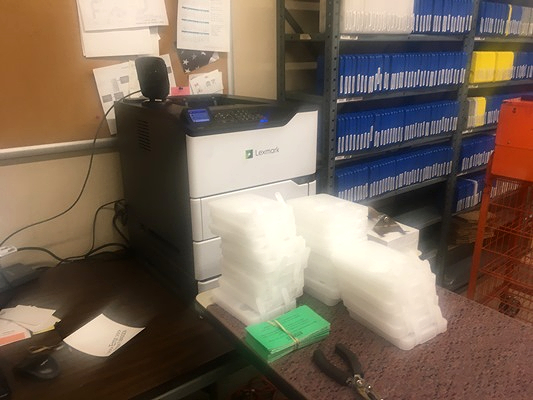
Up next: Testing the system
-
Hot off the Press: Part 3

"Hot off the Press" is blog series from guest blogger, Teresa Kalber. Teresa is the Network Systems Administrator at Colorado Talking Book Library. In this series, she will be shares her library's experience being one of the first two KLAS libraries to implement NLS' Gutenberg equipment.
The first two posts in the series are here:
Hot off the Press: Part 3, The Pilot
We received our equipment on a Friday and got everything working on the following Monday. Even though we had the system working on Sept. 23rd, we didn’t do any testing until I returned to the office on Sept. 30th.
When the Gutenberg system is first installed, it is operating in “sandbox” mode and is connected to the preview database for KLAS. We tried to push through a few orders for staff from the preview database, but they weren’t being copied onto cartridges. It was finally determined that KLAS and Gutenberg weren’t syncing with each other so the orders weren’t getting processed. Once Keystone restarted the syncing process, the orders came through. So on Oct. 2nd, we switched from sandbox to production mode so we could really test the system by starting the pilot.
We began the pilot with 50 existing patrons. For the existing patrons, we decided we would send out 2 cartridges with 3 books on them so we could get them back during the month long pilot and test the return part of the system too. We also made the decision to not send books out to new patrons about a week before we started the pilot. So since the end of September, all the new patrons have been put on the duplication model. New patrons were set-up to receive 3 cartridges with 10 books each on them.
On Oct. 3rd, we sent out our first 76 DoD cartridges! Yay!
The most consistent problem we noticed in the first few weeks of running Gutenberg was that daily KLAS and Gutenberg would stop syncing and we’d have to contact Keystone to restart the process. Because the problem was so consistent they wrote a temporary fix to automatically restart the service each morning to try to help with the process. Within 2 weeks of starting the pilot the problem has been solved and a fix applied during an update of KLAS.
We also had problems with serving walk-in patrons due to the time it would take to process an order. At first, Keystone and Gutenberg were only syncing every 15 minutes. So we would place an order and potentially have to wait up to 15 minutes to see if the order synced or not. If it didn’t sync and we needed to contact Keystone to restart the service, another 15 minutes would pass. Many times we would just pull individual books from the shelves and check them out using front desk since we are unable to assign books to a duplication patron. However, I believe the sync times have been cut down and we don’t usually have problems serving walk-ins now. An order for a walk-in patron, will be sent fairly quickly, even if we are still in the midst of making cartridges for the day. So mail room staff have to check mail cards as they scan each completed cartridge to look for the walk-in patron’s order.
A big learning curve came in how to best figure out how to set the nightly settings for DoD, since it works a little differently than it did before. When I would call Nancy, she would tell me “theoretically” it should work this way. I had to just make adjustments and then see what happened afterwards. Luckily our pilot patrons were very understanding during the process.
Other minor problem we encountered (that have all been fixed now):
- Service queue was adding all the books in a series, even if the patron had already had them before.
- Service queue was adding oldest books from request list, when we had the system set to add the newest books first.
- KLAS would allow orders larger than 4GB, which would then sit on Gutenberg since we didn’t have a cartridge big enough to copy the order
- Duplication orders were still being processed for patrons with a block on their account.
On Oct. 22nd, we participated in a conference with NLS, Keystone and Georgia to discuss how we felt things were going with our pilots. Both of us agreed that there were some minor problems, but nothing to prevent us from moving forward with beginning to convert the rest of our patrons over to DoD. We decided to start the conversion process at the beginning of November with the goal of being completely done with the conversion by the end of the year.
Statistics for our pilot (10/3 – 11/1):
- 644 cartridges sent out
- 192 patrons on DoD
- 91 cartridges returned
Up next: Converting existing patrons
-
Hot off the Press: Part 4

"Hot off the Press" is blog series from guest blogger, Teresa Kalber. Teresa is the Network Systems Administrator at Colorado Talking Book Library. In this series, she shares her library's experience being one of the first two KLAS libraries to implement NLS' Gutenberg equipment.
The first three posts in the series are here:
Hot off the Press: Part 4, Converting existing patrons
On November 4th, we began the process of converting our existing patrons over to the duplication model. We decided to go with our high-demand patrons (we have a separate patron type for high-demand) first, followed by students. Then we worked on converting the remainder of our patrons based on the number of books they were receiving. We initially set patrons up to get 1 cartridge with 10 books on it.
The first day I converted 100 patrons over. However, I realized that in order to complete the conversion by the end of the year, we would need to convert more than that each day. After discussing this with our mailroom supervisor, it was decided to convert 200 patrons each day.
As I ran queries in KLAS to find the patrons I needed to convert, I created Excel spreadsheets with lists of 200 patron ID’s and saved them as text files with the date I was converting them to DoD. Then I could pull the query into KLAS and use the Batch Update Profile tool to convert all 200 patrons at one time. Then I would scroll through the records to verify everything looked like it should.
One of the problems we had early on was duplication orders being sent to patrons that had a block on their account. As I was scrolling through the patrons, I would find those patrons and make their digital book service inactive so no cartridges would go out. Once the problem was fixed in KLAS, I changed all these patrons back to active for digital books, so those that had an automated date to restart service would get a cartridge.One week after a patron was converted to DoD, I would to run the same query again and bump their number of cartridges up to 2, and after another week, set them to our max of 3 cartridges. We gradually increased their number so they didn’t get all 3 cartridges at once and also to try and not overwhelm mailroom staff.
Most days, we were getting around 250 orders. We figured once our conversion was done, we would get somewhere between 300-400 cartridges per day. In order to try and meet those numbers and see how it would affect mailroom staff, I upped the number of patrons being converted to DoD to 300 per day.
Around mid-November, we noticed that KLAS and Gutenberg didn’t appear to by syncing again. Orders we created in the morning we not being sent to the Gutenberg machines. We were unable to serve walk-in patrons because their orders wouldn’t go through. After looking into the problem, we discovered that the batch manager was being overwhelmed with creating service queues for the patrons I had converted that morning. After figuring out this was the problem, I didn’t do conversions until after 3:30 in the afternoon. John C. at Keystone also mentioned putting something in place on KLAS so the service queue would function more efficiently (not sure if this was done or not).
Around the same time, NLS had problems with one of their servers, and our duplication order didn’t run in the morning. Because I had converted patrons in the morning, our order didn’t start copying until 3:30 in the afternoon. That caused us to have almost 1000 cartridges the next day. I guess it was a good test for how much duplication we can get done in a day.
With this large order, we realized the copying process went fairly quickly and we could easily make this many cartridges each day. However, printing the mailing cards took most of the day. So we decided to invest in a 2nd printer to alleviate the bottleneck at the printer.
On 12/3, I converted the remainder of our individual patrons to duplication and also the 200 organization accounts we had on automated digital book service. This resulted in our largest duplication order of 1,015 cartridges, although I’m not sure why. Once this conversion was done, I spent the next 2 weeks moving all the patrons up to 3 cartridges each. The process was completely done by 12/11/19, which worked out great since we needed to be closed the week on 12/16 due to a building maintenance issue.
Statistics for 11/4/2019 – 12/31/2019:
- 15,721 cartridges sent out
- 3,790 cartridges returned
- 4,711 patrons received duplication cartridges
Up next: Problems and ongoing issues
-
Hot off the Press: Part 5

"Hot off the Press" is blog series from guest blogger, Teresa Kalber. Teresa is the Network Systems Administrator at Colorado Talking Book Library. In this series, she shares her library's experience being one of the first two KLAS libraries to implement NLS' Gutenberg equipment.
The first four posts in the series are here:
- Hot off the Press: Part 1
- Hot off the Press: Part 2
- Hot off the Press: Part 3
- Hot off the Press: Part 4
Hot off the Press: Part 5, Problems and ongoing issues
Here is a recap of some of the issues we have/are experiencing with Gutenberg.
Service Queue/Order issues:
- With DoD, patrons now have to the entire collection on BARD. Because of this they are getting books in subjects they may not have been before and also getting a lot of the newer books. We get a lot of RA calls for patrons saying I would never order books like this. The RAs go through their subjects and work with them on getting them the type of books they like. This has brought up the issue that there is no easy way to empty the service queue. Each item must be deleted one at a time. If all the items are deleted out of the queue, KLAS hangs up and usually needs to be restarted.
- Because of the issue above, we are still in flux as to the default number of books we want in the service queue and where the refill point should be. This has also been problematic for us as it results in cartridges going out with less than the 10 we have them set for.
- When RAs are trying to create an order for a patron, it takes our system over 5 minutes to open the “Create Dup Order From Queue” screen. This makes it difficult to create orders for patrons when also taking phone calls because of the time involved. Many times they will have to make a note and go back and create the patron’s order later.
- Cartridges will go out for our on-demand patrons, so we need to have their NS Cutoff set to 0 to prevent that from happening.
- Local Recordings:
- We have been working with both NLS and Keystone to figure out how to get our locally recorded books that are not on BARD to work with Gutenberg. We think we have come up with a solution, but it will take some time to implement.
- Keystone is also working on having functionality for Serials in place for Gutenberg so that we can put our local newsletter on the duplications cartridges.
Cartridge Errors:
- When the service queue is filled, it will select books from our local recordings for patrons. Because we had not solved the problem with our local books, this would cause the cartridge have an “error” status. There is currently not a way to run reports or queries in KLAS to find these errors and make sure those patrons are getting service.
- Also for cartridges that are in error status – the books on the cartridge are not added as a has-had to the patrons record since the cartridge never got checked out. But since the cartridge is on the orders tab, those books are not eligible for selection. There is currently no easy way to get those books back on the service queue.
Gutenberg Hubs:
- Sometimes a cartridge is scanned and the internal and external barcode have not been linked. There is a way to configure a port on the Gutenberg machine to plug in a cartridge and have that connection made. NLS is now sending out the machines with this port already configured. Ours was not sent that way and I had to create the port myself. Once I configured the port, Gutenberg stopped recognizing the first hub in the toaster rack attached to that computer. I don’t know if the two events were related since we have ongoing issues with Gutenberg not recognizing hubs at various times. We are working with NLS on this. It’s a fairly simple fix, but it is an issue.
- Offender (Inmate) Accounts:
- We handle our offender mail separately from our other patrons’ mail. Because of this, we have not converted our offenders to duplication service since we don’t currently have a way to run their cartridge orders separately from the rest of the orders.
- Cartridge issues:
- We ordered a supply of cartridges from Perkins to help with the problem of large orders being created. The Perkins cartridges do not have external barcodes on them. We had to work with NLS to figure out a way to be able to use these cartridges with Gutenberg. Since we placed the order, KLAS put a fix in place to prevent orders larger than 4GB to be sent to Gutenberg for copying.
- We also ran into problems trying to repurpose the green cartridges we purchased to use. NLS had to make a setting change in Gutenberg for us to be able to use these cartridges with the system. However, we have to go into another computer, plug in the cartridges and unlock them with the DTB Protect software before we can use them with Gutenberg.
I hope you enjoyed my posts on our conversion experience. Both Debbi and I have documents we kept during the process that we would be happy to share. I’ve also started a post in the discussion forum if you have questions or would like me to cover something not included in these posts.
-
How's my Driving: Results!
Now that we've been doing this for a year, it's been great to take a step back, look at how it's going, and figure out places where we need to make adjustments. You may have already noticed some format changes in the weekly wrap-ups, trying to make it quicker and easier to scan through these and quickly spot any topics you may want to read up on. I will also be re-doubling my efforts to bring you great technical content (how-to's and development updates), but first: a look at the survey results.
First, I want to take a look at the question I felt had the most interesting responses! After the read more link, I'll go through the rest in order. (Note: questions are listed in heading 3 for easy browsing)
Would you like to see comments or tips from your fellow users? How comfortable do you feel commenting on the forums?
The second part of this question saw the full range or responses, from people who are confident and comfortable with replying, to those who are not at all. However: everyone who answered the first part of the question wanted to see tips or comments from other users!I would encourage all of you to keep that in mind... even if you feel like you're newer to KLAS or if you suspect your comment might be too basic or even wrong... your fellow users want to hear from you! I promise, if I spot something that could use some correction or clarification, I will provide the extra info with respect.
Also, don't feel like you need to wait for me to post a topic that applies to you--you can post comments, tips, or questions any time, anywhere on the forums. They're here for you!
Do you read Key Notes blog posts?
- 45.8% Often

- 33.3% Once / Occasionally
- 12.5% Always
- 8.3% Nope
I think this is great! I'm so happy that so many of you are reading these posts often--and that others are dropping in occassionally for the topics that interest them.
And to the devoted "always" readers: you're awesome. Thank you so much for trusting us with your time and following along with us. That's exactly how I hope for this to work.
What are your favorite types of blog post?
- 91.3% Technical content
- 43.5% Users' Group content
- 34.8% Behind-the-Scenes at Keystone
We hear you! We will continue all types of content, but I will do my best to bring you the technical content you really, really want. And if there's a particular topic you want a "how-to" of or a feature you want a closer look at... let us know!
Do you like having a new post each week or would you prefer less to keep up with?
- 72.7% Weekly is good
- 27.3% Weekly is too often
I didn't know what to expect from these results, so I'm glad to hear our current format is working for most of you! For the rest: you have our blessing to skim the weekly wrap-ups and skip any weeks when you're too busy.
What do you think of our Notes from the Scribe guest posts?
- 57.1% Good, and I'd like to see more guest posts!

- 23.8% Good, but I'm not interested in other guest posts.
- 19% Not interested
We're so glad most of you are enjoying these! We'll also look for other opportunities to put up a guest post now and then... but if they don't interest you, don't worry. Guest posts will remain an occassional thing, and they'll be clearly marked in the wrap-ups so you can skip them.
Anything else you want us to know about the Key Notes Blog?
(Any topic requests? pet peeves? guest post volunteers?)All of your comments are noted. In particular, I'd like to respond to one:
"It would be nice to be able to comment directly to a blog post instead of going into the forums."
I agree! Unfortunately, that is not something our current platform can do... but we will keep that feature in mind as we continue working to make this site more useful for you.
Do you read the Thursday Forum Tips?
- 70.8% Once / Occasionally

- 12.5% Often
- 8.3% Always
- 8.3% Nope
Very interesting! Since the tips are always short and sweet, I'd expected them to have a bigger following than the blog, but that doesn't quite seem to be the case!
I will watch for opportunities to make the Thursday forum posts even better, but in the meantime, I hope you'll continue to drop in occasionally for the tips that interest you... and maybe let a co-worker know if you see one that applies to their job duties. I'd appreciate your help in getting this content to the people who will find it useful!
Do you like weekly tips or would you prefer less to keep up with?
- 73.9% Weekly is good
- 26.1% Weekly is too often
Fairly close to the results for the blog... seems like weekly is still good for now, but between the 26 percent who find this too often and fact that most people only read them occasionally, we may decide to post fewer tips in the future. If we do, I'll try to make them twice as good to make up for it ;)
Have any of the tips encouraged you to try a new feature, change a setting, or do something differently in KLAS?
- 52.2% Yes, one or two

- 30.4% No
- 17.4% Yes, several
I thought this, along with the next question, might be a good metric for how useful the posts are. I'll be bearing the results in mind and thank you for the feedback.
If you come across a tip in the future that leads you to try something new or change something up, please reply on the forum or drop me an email to let me know. I'd love, love, love to know which tips strike a chord!
Have any of the tips prompted you to contact Customer Support for help or more information?
- 56.5% No
- 34.8% Yes, one or two
- 8.7% Yes, several
I'm sure Customer Support will be glad to hear I'm not inundating them as much as I could be! They're here any time you need them, but I will continue to strive to make things clear enough on their own that no additional help will be needed.
Anything else you want us to know about forum tips? Any topic suggestions or questions?
All comments are noted! To answer a couple questions:
"I also worry that they get buried on the forums. Maybe cross-post to a separate place on the main menu next to the Key Notes Blog on the left?"
Remember that you can always browse the forum by topic to check for any overlooked threads in areas that interest you--plus, you can subscribe to topics of interest, and hold onto the notification emails until you have time to follow up!
I think a list of everything might get too long to be useful, but I will create a "best of" page to keep track of and direct people to Thursday Tips that I think will remain relevant for longer. Thanks for the suggestion, and watch for this coming up soon!
"Are they moderated for content?"
Individual posts are not moderated--they go up right away. That said, we do moderate user accounts (only people who are confirmed KLAS users have their accounts confirmed) and only logged-in users can post.
Also, I am notified of everything posted to the forums and read it right away. I may occasionally move a post that I think belongs under a different topic, so that other users can find it easier, but I will never delete someone's comment (unless it is completely, objectively inappropriate, but I trust you all not to do that to me).
What prompts you to read content on KLASusers.com?
- 71.4% I read the Weekly Wrap-up email
- 57.1% I check the site on occasion
- 9.5% I read posts when a coworker or supervisor recommends them
- 4.8% I subscribed to the forums I'm interested in
- 4.8% I check the site regularly
- 0% I use an RSS feed
Looks like the wrap-up emails are working as intended! As I've said, we'll try to keep them easy to browse through so you can quickly spot topics that might interest you.
I'm surprised that so few have subscribed to a forum... this is a fantasic and very easy feature that I'd encourage you to consider! If there are one or two topics on the forums that apply to you (maybe NLS and KLAS Core for administrators, Patron Services for RAs?) give it a try. You will receive a clearly marked email with anything that is posted to that forum. And if you decide later that you'd rather not get those emails, you can always un-subscribe.
Conclusion
Anyways, thank you again for your time! I do think this will help us make this site and our other communications better and better. Also, I hope you will all feel free to contact me any time you have requests or specific feedback.
Here's to another great year and to making KLASusers.com the great resource you all deserve!
- 45.8% Often
-
How's My Driving?
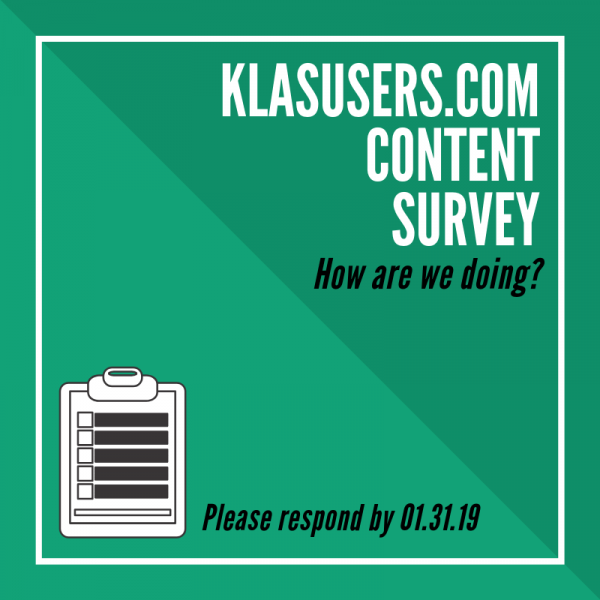
Happy New Year!
I don't know about you, but I can't believe it's already 2019! For me, that doesn't just mean another resolution to fold my laundry right away, or the end of the holiday baking season (though I will miss all those Christmas cookies). It means we're closing in on the first anniversary of the Key Notes Blog and Thursday Forum Tips!
That's right, we've been doing this every week since last February! To help us review how it's going and adjust course as needed, we put together a quick survey for you. It's only 12 questions long and will be open through the end of the month.
Any and all feedback is greatly appreciated! I'm doing this for all of you, so please chime in to let us know how it's going!
(This survey is closed.)
-
Important Coronavirus Info

As efforts to slow the spread of the Coronavirus / COVID-19 ramp up, we wanted to share some info with you all:
1) Keystone Support will still be available
We are prepared to work from home if needed, and currently have no plans to close or restrict hours.
2) Working from home with KLAS
Working from home can't help you keep up with circulation during closures, but letting Reader Advisors (and other staff who do their jobs only or primarily in KLAS) work from home is easy with v7.7.
Because KLAS v7.7 secures your connection with seamless HTTPS instead of a VPN, Keystone-Hosted users can connect from anywhere. So long as your staff have access to home internet, they can take KLAS home with them. It will just work--no VPN or additional set-up required.
If you are still on Keystone-hosted version 7.6, you can connect from home using the instructions we gave after recovering from the SAN failure. No special VPN required, just the correct version of the OpenVPN software. If you need us to re-send instructions, let us know.
For Self-Hosted users, additional set-up may be needed to connect to your servers off-site. For 7.7, we should be able to create an activation key that will allow remote access. For 7.6, start with your own IT, and let them know that we're here to assist if needed.
Finally, if you have reduced staff handling your mail, we have strategies in this Forum Post: Short Staffed? Strategies to keep up.
3) Quarantined Inventory
If you need to quarantine returned books or other inventory from some or all of your patrons, contact Customer Support.
We can help you set up an addition circulation status (NAC:QTN), allowing you to track what inventory is currently set aside to allow any contamination to die off. If you find other measures are called for, we can discuss your needs and help you determine the best strategy.In short, please know that we are here to support you and any efforts you are taking to stay healthy and protect your patrons.
-
Improving Foreign Language Service
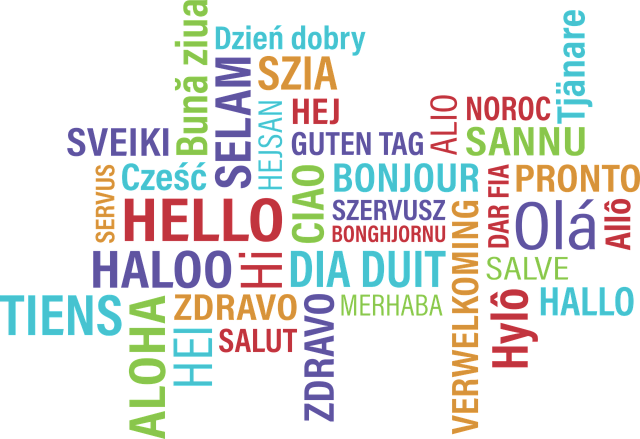
As you may have heard, PIMMS recently added a large number of new Patron Language codes. This will be great for getting data and statistics on non-English-speaking patrons... but it also provides an opportunity for much better patron service!

Like many opportunities, though, there's a bit of challenge too. In KLAS, Patron Language (aka PatLang) is not like Subject or Author preferences. There is no Nightly Program that goes through, finds books in a patron’s preferred language or languages, and assigns them or adds them to a Service Queue. Instead, Language is one of the options for every other program to check against.
Most Libraries have Nightly set up so that Requests and Reserves ignore language, but Subject and Author have to match. This allows any patron to request a book in a language they don’t usually receive, but ensures that automatic selections will be in their preferred language (or languages).
This also means for patrons who speak a language other than English or Spanish, there will be few-to-no books available by AutoSelect. NLS is working to fill out the foreign language collection, but for now, Nightly will find few (if any) Mystery books for a patron speaking only Cantonese, and few (if any) Romances for a patron who only speaks Polish.
So how do you ensure that your Cantonese- and Polish- (and Everything Else)-speaking patrons get books?
First, they need to have the specific language(s) they speak on their profile. If they have a Patron Language of just “Other,” NLS won’t know what languages are most needed, and you won’t be able to match up that patron with any books in your catalog. That patron will only ever get Requests and Reserves (potentially including Series, depending on your Nightly configuration).
Second, you need to make sure they have a preference setup to find books matching their language. At this time, our recommendation is to have Subject headings for each of your Patron Languages other than English and Spanish.
This allow you to add the subject “Cantonese Books” to all titles in Cantonese and give your patron a preference for any/all of those books. This is much more efficient than needing to either give your patron preferences for every subject you might get a Cantonese title in or manually doing a book search and adding requests for the patron every time a new batch of Marrakesh titles are added.
Additionally, a patron with both English and Polish as Language preferences and both Romance and Polish Language Books as subject headings will receive a mix of Romance books in English and whatever's available in Polish.
Hopefully the foreign language collection will eventually be large enough you can send foreign language titles by actual subject preferences. But, for now, this approach will ensure patrons get what you have. Plus, NLS will get the statistics on what languages are most needed, steering their collection development to the benefit of your patrons—a very win-win scenario.
Please let us know if you have questions, any time you need more Patron Language options added to your list, or if you need help setting up Subject headings for specific languages.
-
Improving Foreign Language Service – Part II

During our latest New Features Webinar, we had a question about getting the complete list of all languages recognized by PIMMS. Here are some things to know about that list:
- The list that PIMMS adopted is based on the ISO 639-2 Bibliographic list, a standard list maintained by the Library of Congress. There are 487 languages on this list.
- This list is designed to represent all the languages that you might expect to find a book written in, but it is not necessarily a list of all spoken languages.
- The code values in the ISO-639-2 list are used in MARC records to indicate the language(s) of a title.
- The code values that PIMMS accepts are numeric codes, instead of the alpha values that represent the standard they are attempting to match.
There are also some things to consider regarding language codes in KLAS:
- The list of Patron Language codes (PatLang) are mapped to the numeric PIMMS codes.
- The list of Language Codes for title records (LangCode) are mapped to coincide with incoming MARC data.
- The local codes for Patron Languages and Language Codes for title records need to match for Nightly and Book Search exclusion checks.
- The list of values in a drop down are sorted by Code Value instead of description.
- The more values you have in a list of codes, the more difficult it gets for your staff to use.
- Changes to a Code list are not applied retroactively; clean up needs to be made on all affected records.
In short: there are a ton of language possibilities out there. However, when you balance out the needs of your patrons, your collection, and your staff, the only languages you really want to have in KLAS are the ones you need right now.
You can certainly add more languages than you have now without causing headaches—and we’re happy to help you do it! Languages that your patrons speak, that appear in the collection, and/or that you want to track interest in should definitely be added to your code lists.
Just know that too many languages can make things complicated, and too many changes later on can be a pain.
If you want the long version, read on for more details.
Difficulties of a Long List
Having “too many” options in a drop-down field introduces some really interesting ways to mess up data entry. For example, while the full list of PIMMS languages was briefly available, one patron was given “Middle English” as their default Language! The more options there are, the easier it is to accidentally select the wrong one, either by misreading or mis-clicking.
In addition to the unwieldiness of such long list and the ease of selecting an unintended entry, these lists sort by code not full description. This means you should take care with how you setup the codes, or the list will not be in a straightforward, alphabetical order. Once you get more than 30 or so entries in a combo-box, having a logical sort order becomes very important! For example, browse through the list of states on the Contact tab. The state codes are well-known—but they don’t sort the same as the names of the states. If you weren’t already familiar with them, could you easily use this field? What if the states weren’t in order at all?
Getting back to the list of languages that you are managing in your database – another thing to keep in mind is the way a language might be referred to by a patron vs its official name or designation. Many libraries have had Cambodian in their Patron language list for years as C or CAM but the Marc value is khm for Khmer. Serbo-Croatian was previously used for what are now distinguished as four different languages whose official codes are based on the spelling of the language in that language – hence HRV for Croatian. The MARC code is PER for Persian but the language is frequently referred to as Farsi.
Will those codes help your staff browse to the right part of the list? It’s important to understand how patrons might ask for materials in these languages, and choose local codes and descriptions such that your staff can match what a patron is saying to the proper selection.
Fortunately, the Code Files allow you to use a local code for the Patron and Catalog modules while still mapping to PIMMS and to the codes used on MARC records. Think about the local codes you may want to use, and how can use them to enforce a reasonable sort order.
Remember: selecting logical, well-sorted codes, and then selecting the right one from the list every time will be easier the shorter you keep the list.
Changes to Code Files are not retroactive
Code Files can be tricky to deal with, especially in cases where you are dealing with large numbers of records, mapping between modules, and mapping with both PIMMS and MARC records. If you’re up to it, you can add to your PatLang codes, but we recommend you leave the LangCode file to us—and don’t go hog wild changing the codes.
Here’s why:
Code Files aren’t like Headings. Headings are linked on each record; when you update a Heading, the changes appear on each record. Codes get stored on each record instead, and the Code File simply defines what that code means. If you change a Description, that’s fine! But if you change a Code, all the records with the old code still have the old code. Records with the old code won’t be able to find it in the Code File to define it, triggering error messages and generally breaking things.
Plus, for this Code File, mapping must be maintained between the Patron and Catalog modules. Doing so means Nightly can match the patrons’ preferred Language to the Language on title records.
So, if you want to change one of your language codes:
- Add the new Code to the PatLang Code File, setting the CMLS Lang Code to match the code you want to update.
- Find all of the patrons with the original Code on their record, updating each of them to use the new Code instead.
- Only delete the original Code from the PatLang Code File once it’s no longer associated with any
- Repeat the process in the LangCode file, with the catalog records, making sure to maintain the CodeXref (MARC record mapping).
Or... better yet, have us do it.
Any time you need a language added to the list, or if you want to adjust the local codes in use for sorting the list, please send the details to Customer Support at , and we’ll take it from there.
Policy Changes are also not retroactive – About Bilingual Titles
While you’re thinking about all this, here’s one last thing to keep in mind:
In the past NLS issued MARC records for bilanguage titles with a combined code, such as E/S or S/E for books with both Spanish and English parts. That policy changed! According to NLS, these books are now given a language code reflecting the “primary” language of the title, even if one or more additional languages are included. For example, “Drivetime German” which is marked as E/G in a number of databases, is primarily in English (with some German) according to NLS. Meanwhile, “eTicket Ingles” is a Spanish title (which also has English).
New MARC records arrive cataloged this way. It’s up to you whether you want to update their records to reflect the bilingual nature of the titles, or want to update your back catalog to use the approach of cataloging the primary language.
For more information about this, or advice on how to apply changes in the direction of your choice please let us know!
-
In case you haven't heard...
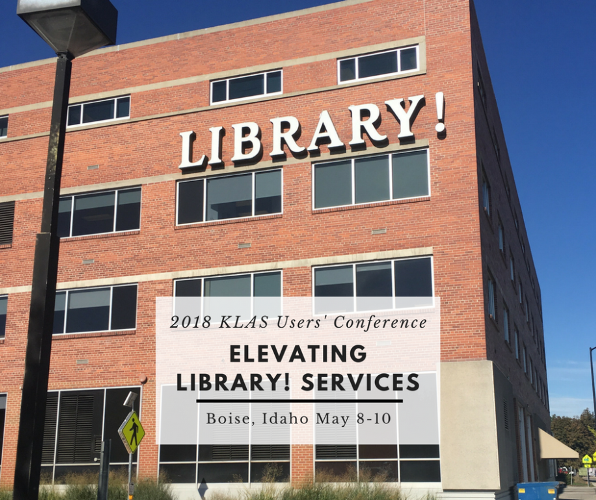
The 2018 KLAS Users' Conference is next week. Yeah, you probably have, but we thought we'd mention it anyway.
f you aren't able to attend, but you want to follow along at home be sure to tune into Keystone's social media accounts on Facebook, Twitter, and LinkedInfor pictures and posts from the conference. Or, you can search for the hashtag "#KLASUC2018" which we will be using and encouraging all our conference attendees to use as well.

Also, please note that the Key Notes blog will be on hiatus next week while Katy and I are at the conference. But, we hope to come back with a ton of ideas for new posts, features for KLAS, and a ton of new information and tips and trick with you.
-
Information Round-up

We’ve got some new information up for you this week! Let’s have a look...
1. Release Lists
As the v7.7 rollout continues, 7.7 itself has been under continuous improvement. I’ve just posted the most recent build, 7.7.14 (along with 12 and 13, which were very small builds targeted to fixing a few localized but important issues) to the 7.7 Release Lists page.
The new build has some great quality-of-life improvements, including some new options for your patron queries! For example, you can now query against patron subscriptions (including SER-DDB9 to find patrons with a BARD registration) and whether a patron is set up for Duplication service. A QuickRef with a list of all the new fields you can query against is also available on the Release Lists page. There are improvements for our IRC and other customers as well, so no worries--it's not all LBPH stuff.
2. Duplication Info
I’ve been sharing a lot of information about Duplication on this blog, to keep you all informed and up-to-date. But we know it can be a pain to have to go back and find something weeks or months later; especially if you aren’t sure if it was here, on the discussion forums, or somewhere else.
To address this, we’ve created a one-stop-shop for Duplication Info. You can access this page from the Main Menu, under Documents – Quick Reference (and it’s a static URL, so feel free to bookmark it if that works better for you).
From now on, all information having to do with Duplication that is posted to KLASusers will be added to the Info page to keep it easily accessible. I have a lot more planned for you (and would love to hear what you need most!) so I hope this Info page will be helpful for keeping it all organized.
3. Scribe Specs info sheet
A new document is available on the Duplication Info page--one that I think plenty of you will be interested in!
The Scribe Specs & Cost document briefly lays out all the specifics of the Scribe system. It covers what is included with a Scribe, the details for each component of the system, and how much it costs all in a streamlined front-and-back info sheet, perfect for your IT folks or funding agencies. Head over to the Info page to give it a download!
-
Introducing the Scribe 2.0
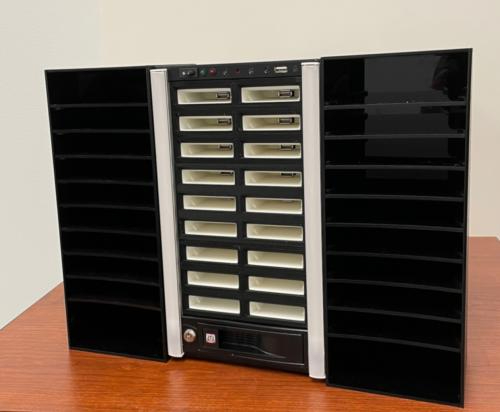
Keystone Systems is pleased to announce an updated version of the Scribe, our duplication on demand appliance.
The Scribe 2.0 merges the current Scribe components into a single unit thus providing the computing and storage of the Scribe Mini along with the duplication slots of the Scribe Tower in one device. It is a smaller package, with the cartridge slots being more tightly packed than the current Scribe Tower and new shelving units on each side providing organization for the mail cards.
The new design makes use of a manufactured computer case, meaning we longer need to manufacture Scribe Tower cases locally which was one of the recent bottlenecks in filling Scribe orders.
The Scribe 2.0 maintains the light strips to provide the status of each duplication slot by indicating whether it is duplicating a cartridge, completed, or has encountered an error. However, the hardware controlling the light strip has been updated to a new component we can control, with the expectation that the lights remain more reliable.
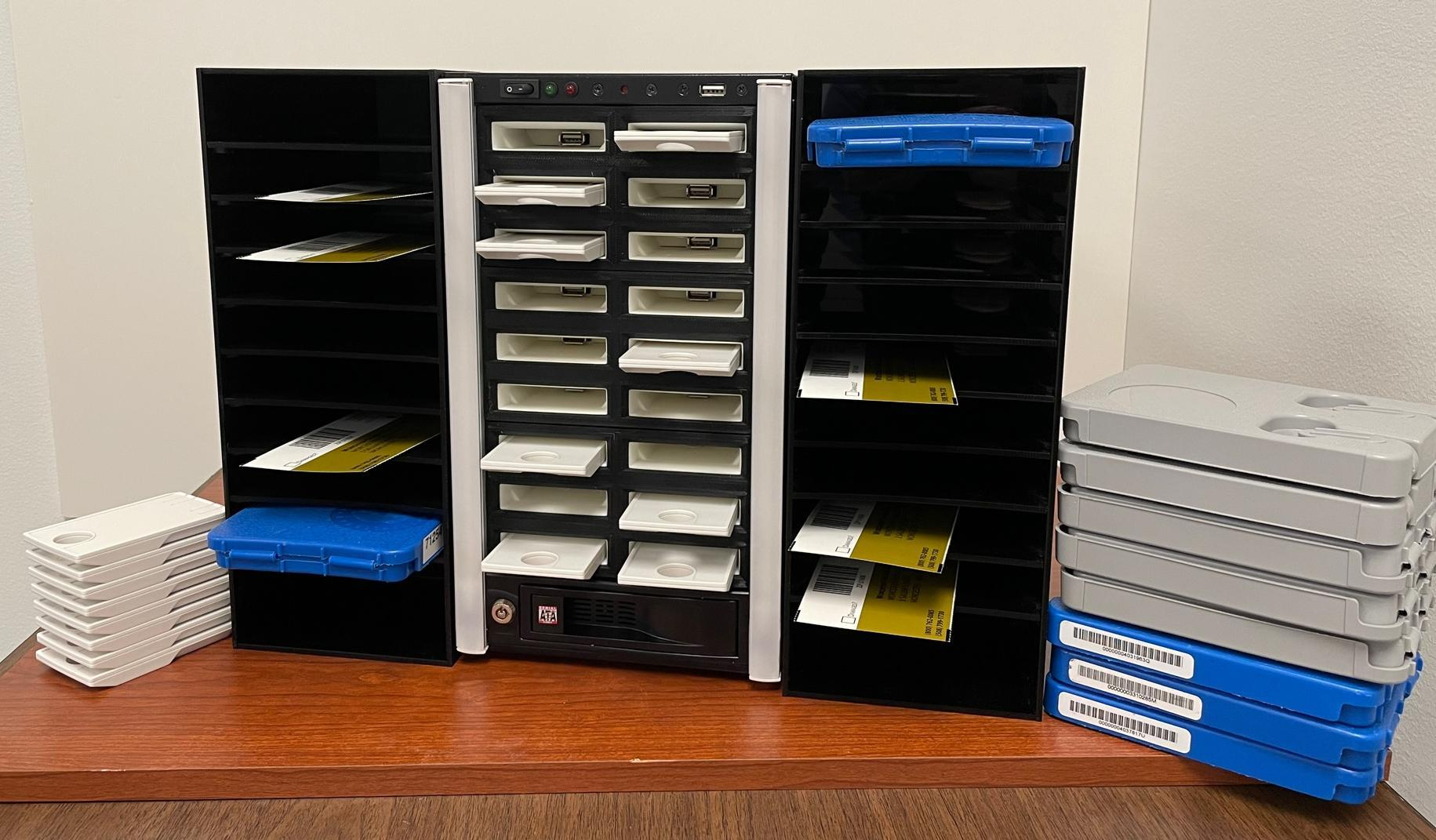
(click on the image for a closer look)All Scribe Systems (whether a standalone Mini, a Mini plus Tower, or the new Scribe 2.0) have access to the same functions, including the web monitor, regular and walk-in duplication modes, and the upcoming ability to unlock and repurpose white NLS cartridges.
Due to increases in the prices of components, the cost of a Scribe 2.0 is $1,750. Existing orders for Scribes will be fulfilled with Scribe 2.0 systems, and the pricing at the time of order will be honored.
-
Introducing the Tag List
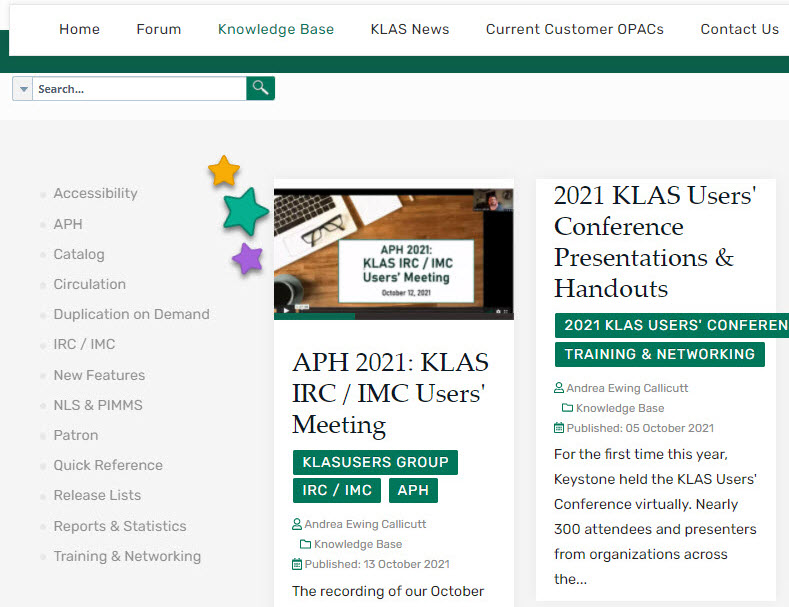
Have you noticed something new over on the Knowledge Base?
With the KLASusers redesign, we hoped to help you find resources without needing to navigate a bunch of menus or know how the specific content you were looking for was formatted. To do so, we condensed the site into just two areas (the Knowledge Base and KLAS News) with the expectation that users could find specific content using the search box or clicking through Tags.
This works well for some, but not for others. It didn’t help that articles were not displayed newest-to-oldest, but by subcategory.
Well, we've added something we think is going to be a big help!
There's now sidebar on the left side the Knowledge Base, and it’s also coming soon to the KLAS News section. This isn’t a menu—you don’t need to figure out the one right path to get to the article you want. Instead, it’s a listing of Tags, and an article can have as many Tags as it needs to describe the content.
We hope these Tag lists will help you browse the site more easily, whether you’re after something specific or just seeing what’s available.
If you know exactly what you’re looking for or looking for something that isn’t in the tag list, you can still use the Search box to navigate the site as well. There are a couple tags with little (or any) content just yet—consider it a peek at my to-do list. I plan to fill in the Knowledge Base even more over time, so stay tuned. In the meantime, if there’s a tag you think we should add, please let us know!
-
Introducing: Scribe Mini
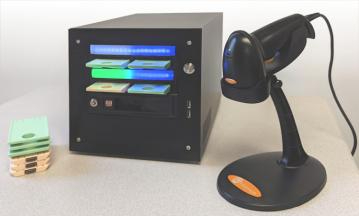
While the Scribe System already has a lot of great features, we felt that there was still room for improvement. Two issues that we specifically wanted to address were:
Capacity
The NUC computers we were using as the brains of the Scribe System only have capacity for a portion of the Talking Book collection, and we found that not all libraries have the internet speed and bandwidth to reasonably download the books that were not included in the cache. We did everything possible to reduce the amount of downloading needed, but especially when it comes to serving walk-in patrons, it became clear that some libraries just need the whole collection to be stored locally.
Flexibility
We were also aware that not every location would need a 15-slot cartridge tower. Some libraries were interested in having a second duplication station at their front desk for walk-in convenience or even self-service, and the full tower would be much more than was actually needed. Additionally, there was interest in making duplication stations available at outreach centers or even public libraries, but again, these needed to be smaller and as foolproof as possible.
The Scribe Mini answers both of these issues!
An upgrade from the tiny NUC computers, a Scribe Mini is still much smaller than your standard workstation computer but has the capacity to store the full NLS collection plus local titles. On top of that, it has room in the case itself to host four onboard cartridge duplication slots plus LED indicators.
Because of this, the Scribe Mini can be used as a standalone duplication station! If the four cartridge slots aren’t enough, the Scribe Mini can also be used to pilot a 15-slot cartridge tower... or even two towers, for a grand total of 34 cartridge duplication slots!
A complete Scribe System will now include a Scribe Mini (instead of a NUC), a Scribe tower, and a barcode scanner.
The Details
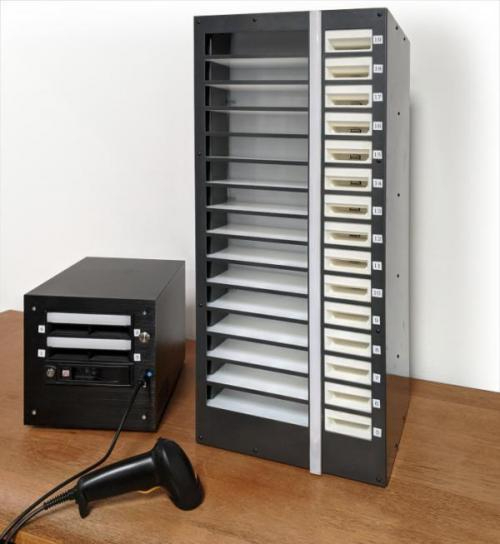 The Scribe Mini still requires internet access, but all book downloads will be performed overnight, keeping its local collection up-to-date automatically. During the day, the connection will be used to communicate with your KLAS database about Duplication Orders, and to receive the occasional software update from Keystone.
The Scribe Mini still requires internet access, but all book downloads will be performed overnight, keeping its local collection up-to-date automatically. During the day, the connection will be used to communicate with your KLAS database about Duplication Orders, and to receive the occasional software update from Keystone.The Scribe Monitor web page will still be used to display real-time information about the system and the status of each cartridge slot (including the 4 onboard slots and 15 or 30 tower slots), accessible from wherever you are.
For more details and technical specifications, please review the updated Scribe Specs & Cost document available for download below.
Wait, did this delay...?
While we think this is an awesome new option, we understand that some of you may be concerned that we’ve spent time developing hardware instead of on a new feature you really need, or on getting your organization upgraded to version 7.7. But don’t worry—while we are a small company and projects inevitably cross departmental lines, the new Scribe Mini was developed by different people than the ones working on other high-priority projects. Work on this new Scribe hardware did not delay your upgrade or new feature.
So how do I get one?
One Scribe Mini is included as part of each library’s free Scribe System. (If you have already received a Scribe system with a NUC, you may contact us to discuss whether you need an upgrade.) Additional Scribe Minis, Scribe towers, and complete Scribe Systems may be purchased; please see the latest Scribe Specs & Cost document for pricing information. Note that there is a price increase due to the additional hardware costs.
The Scribe Mini and Scribe towers are assembled in-house, but once ordered, we will build them as quickly as we can get the parts in (and without pulling people off of other projects).
Let us know if we should plan to build a Scribe Mini for your library!
Page 4 of 10

